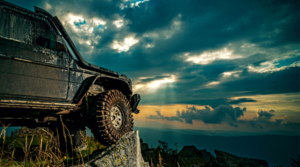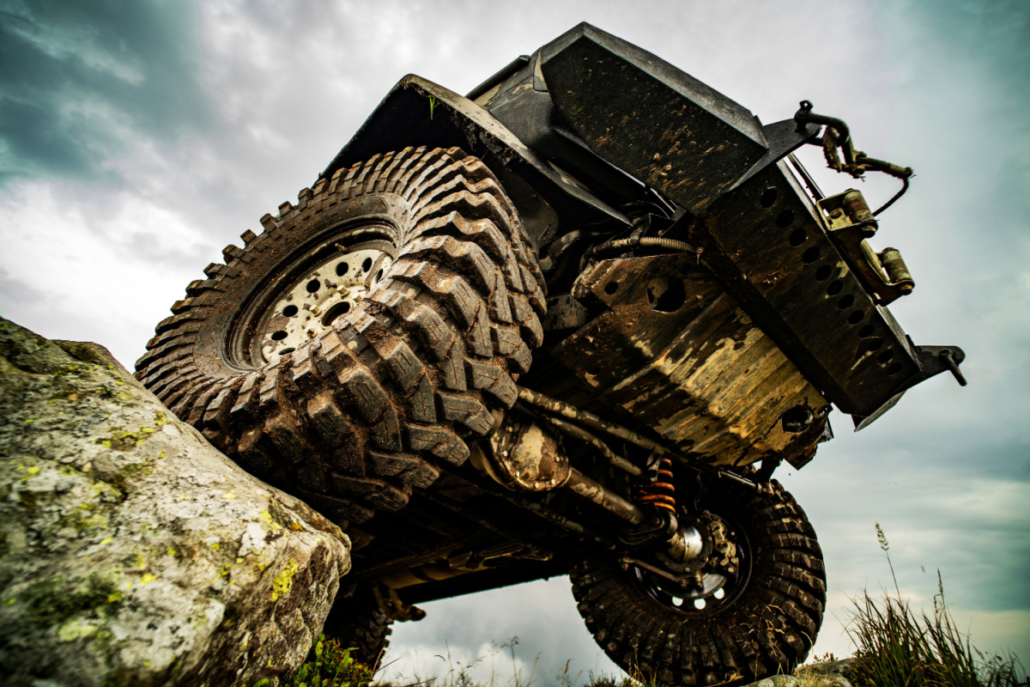Off-roading opens the door to unforgettable adventures, but it’s not as simple as throwing your rig in gear and heading into the wild. Like any serious outdoor pursuit, it requires knowledge, preparation, and respect—for your gear, your environment, and your own safety.
Whether you’re planning your first trail run or just bought your first 4×4, these 10 essential tips will help you get started the right way.
1. Pick the Right Rig for the Job
Not all vehicles are built for off-road abuse. Choose a ride with four-wheel drive (4WD) or all-wheel drive (AWD) and solid ground clearance. Bonus points for off-road tires, locking differentials, or aftermarket upgrades—but even stock rigs can go far when driven smart.
2. Know Your Vehicle Inside and Out
Before you hit the trail, learn your vehicle’s specs:
-
Approach/departure angles
-
Breakover clearance
-
Traction control systems
-
4WD modes and transfer case functions
Understanding these will help you navigate obstacles safely and prevent trail damage—or costly repairs.
3. Adjust Tire Pressure for the Terrain
Lowering tire pressure increases traction on soft surfaces like sand, snow, or mud. Just don’t forget to air back up before hitting pavement. A portable compressor is a must-have item for every off-roader’s kit.
4. Pack the Right Gear
Off-roading is unpredictable. Make sure your rig carries the essentials:
-
Recovery gear (tow straps, recovery boards, D-rings)
-
A shovel and basic tool kit
-
First-aid supplies
-
Extra water, snacks, and fuel
-
A map or GPS (cell service is never guaranteed)
5. Never Go Alone
Trail rule #1: Always travel with a buddy.
Having another rig means someone can help if you get stuck, break down, or face an emergency. It also makes the trip more fun—and safer.
6. Know Before You Go
Research your route. Look up trail ratings, current conditions, seasonal closures, and known hazards. Apps like OnX Offroad or Gaia GPS are great for scouting terrain and downloading offline maps.
7. Follow Trail Etiquette
Respecting the trail keeps it open for everyone. Stick to designated routes, pack out your trash, and minimize your impact on the land. Give the right-of-way to hikers, bikers, and uphill traffic when appropriate.
8. Start with Easy Trails
There’s no shame in starting slow. Choose beginner-friendly trails to build confidence and get a feel for your vehicle. Once you’ve mastered the basics, you can take on more technical terrain.
9. Learn the Fundamentals
Take the time to learn critical off-roading techniques like:
-
Hill ascents/descents
-
Water crossings
-
Rock crawling
-
Safe winching and recovery
Practice in a controlled environment or join a beginner off-road class to sharpen your skills.
10. Safety Above All
Wear your seatbelt. Use your head. And know when to call it quits. If a trail looks unsafe or beyond your comfort zone—turn around. No photo op is worth risking your rig or your life.
Final Thoughts
Off-roading is about exploration, connection, and testing your limits—but it’s also about responsibility. Take care of your gear, tread lightly on the land, and always put safety first. Your rig will thank you. The trails will too.
Looking to upgrade your off-road setup?
👉 Book a Free Consultation or swing by the shop—we’ll help you build a rig that’s ready for anything.




